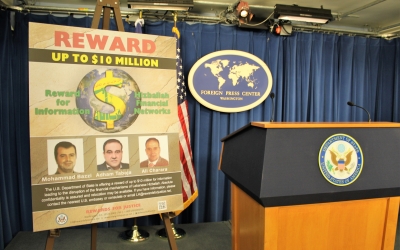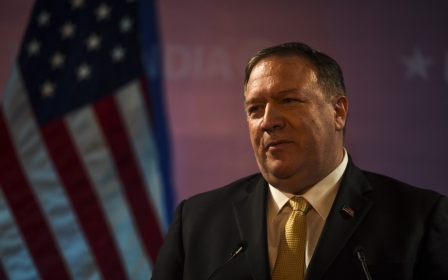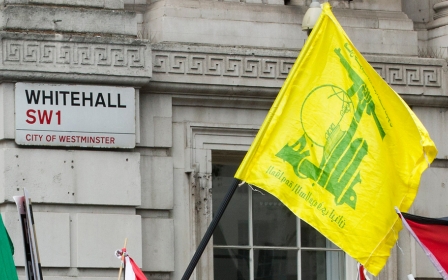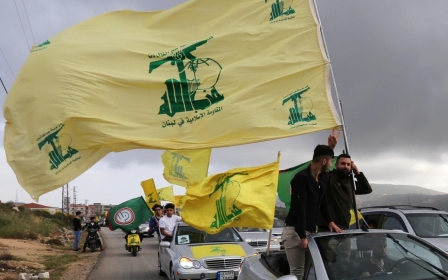US imposes sanctions on Hezbollah MPs in Lebanon
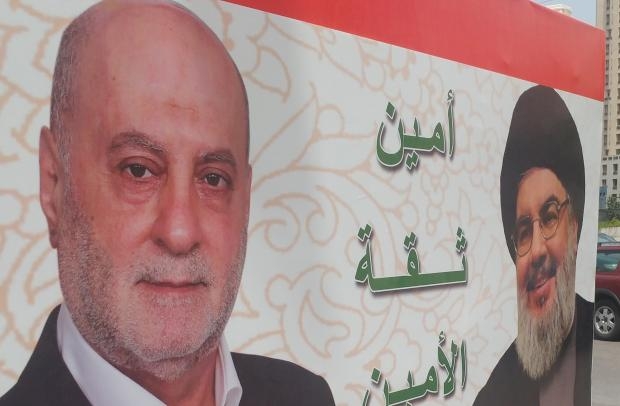
The United States has imposed sanctions on Hezbollah political officials, including members of the Lebanese parliament, accusing the group of threatening the "economic stability and security of Lebanon and the wider region".
The sanctions, announced on Tuesday, target parliament members Amin Sherri and Muhammad Rad, as well as Wafiq Safa, a top aide to Hezbollah chief Hassan Nasrallah.
"Hezbollah uses its operatives in Lebanon's parliament to manipulate institutions in support of the terrorist group's financial and security interests, and to bolster Iran's malign activities," Sigal Mandelker, the US Treasury's under secretary for terrorism and financial intelligence, said in a statement.
'There must be an official stance by the parliament and the government against this violation of Lebanese sovereignty'
- Ali Fayyad, Lebanese MP
New MEE newsletter: Jerusalem Dispatch
Sign up to get the latest insights and analysis on Israel-Palestine, alongside Turkey Unpacked and other MEE newsletters
Hezbollah has 13 members in Lebanon's 128-seat parliament, but together with its allies it controls the country's legislative branch.
The group is also represented in the cabinet of Prime Minister Saad al-Hariri.
Still, in the statement announcing the sanctions, Mandelker said that Washington was working with the Lebanese government for a "more peaceful and prosperous future for Lebanon".
'Insult to the Lebanese people'
Hezbollah-allied MP Ali Fayyad was quick to denounce the sanctions on Tuesday, calling them an "insult to the Lebanese people".
"There must be an official stance by the parliament and the government against this violation of Lebanese sovereignty," Fayyad said, as reported by Lebanon's National News Agency.
The sanctions will freeze any assets Sherri, Rad and Safa may have in the US and restrict American citizens from dealing with them financially.
The US designated Hezbollah, a Shia-dominated Lebanese militant group and political party backed by Iran, as a terrorist organisation in 1997.
However, the group's leaders say it is a resistance movement that aims to protect Lebanon from Israel.
Since 2005, Hezbollah has played a major role in Lebanese politics.
It emerged from the country's latest parliamentary election last year as the biggest winner, managing to maintain an overwhelming majority of support from voters in Shia-dominated districts.
For example, the Hezbollah-led slate on which Rad was elected received more than 85 percent of the votes in south Lebanon.
But Washington rejects the difference between Hezbollah's military wing and political activities.
In its statement on Tuesday, the US Treasury said the sanctions "underscore that there is no distinction between Hezbollah's political and violent activities".
"This action highlights how Hezbollah uses its political power to corrupt and exploit Lebanon's financial and security elements, taking advantage of the country's democratic system and values," the department said.
That was echoed by the US State Department later on Tuesday, which said that "any distinction between Hezbollah's political and military wings is artificial".
In a statement, the department also said the sanctions were part of the Trump administration's "maximum pressure campaign" on Iran, which it said "has already succeeded in limiting the financial support Hezbollah receives".
Middle East Eye delivers independent and unrivalled coverage and analysis of the Middle East, North Africa and beyond. To learn more about republishing this content and the associated fees, please fill out this form. More about MEE can be found here.


